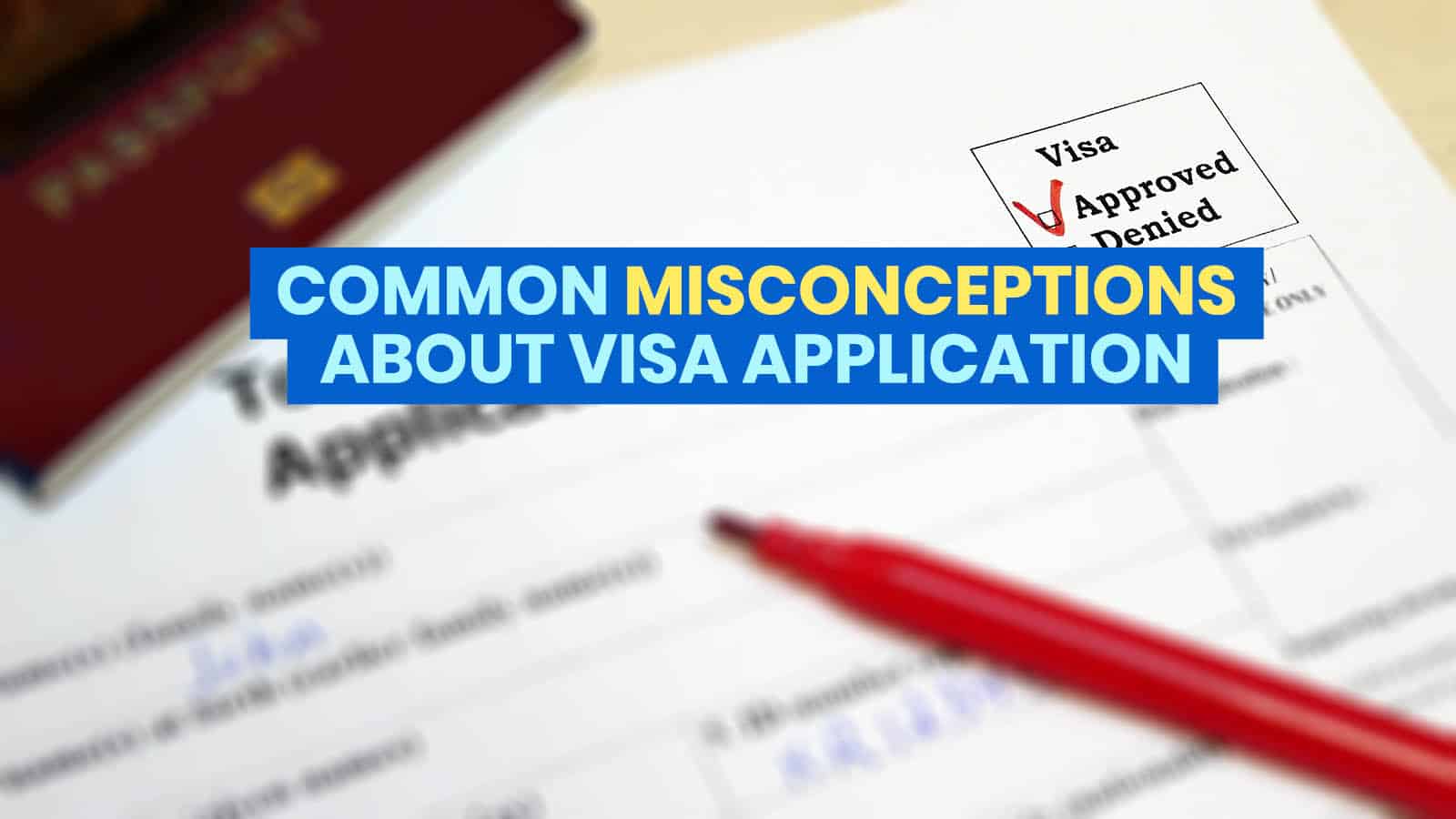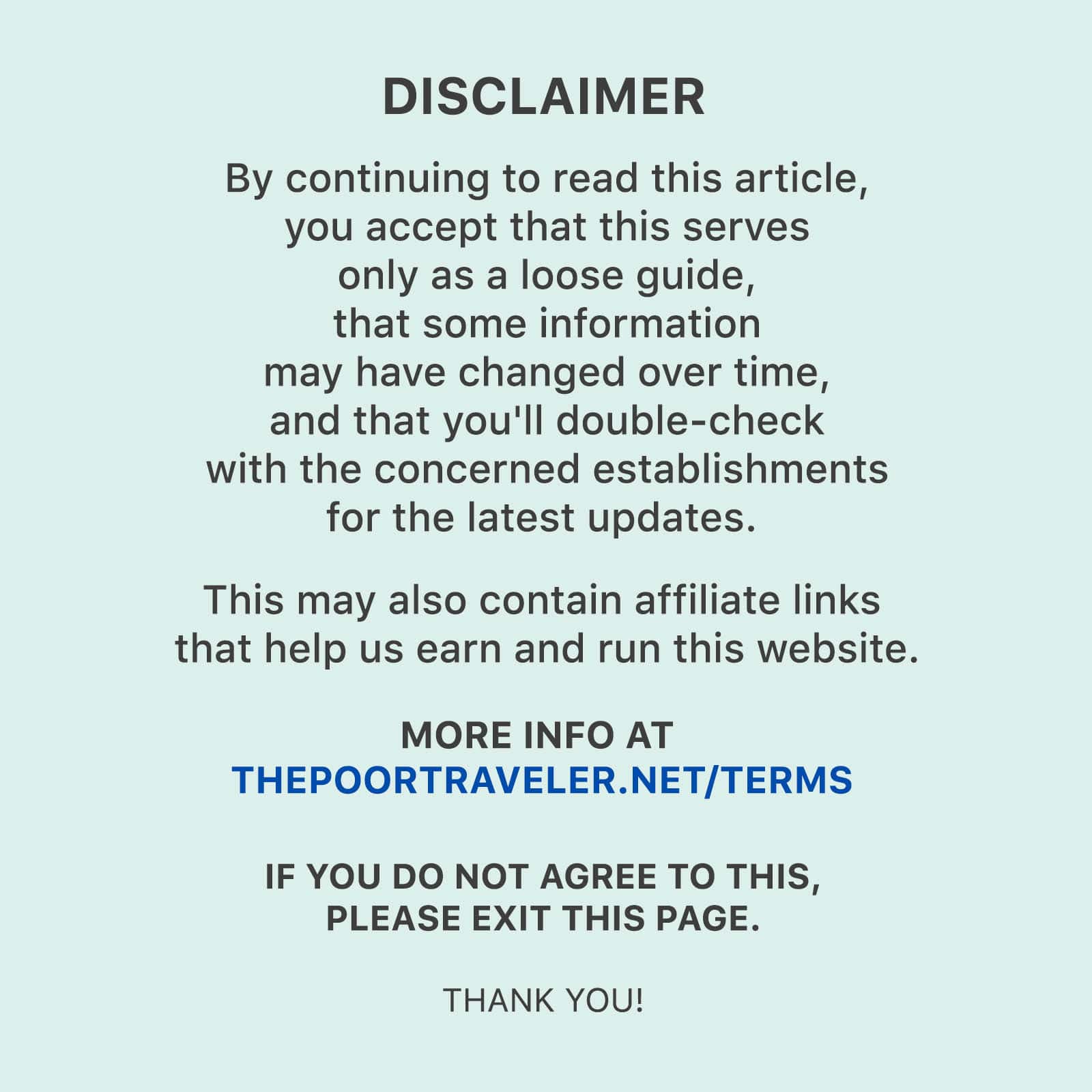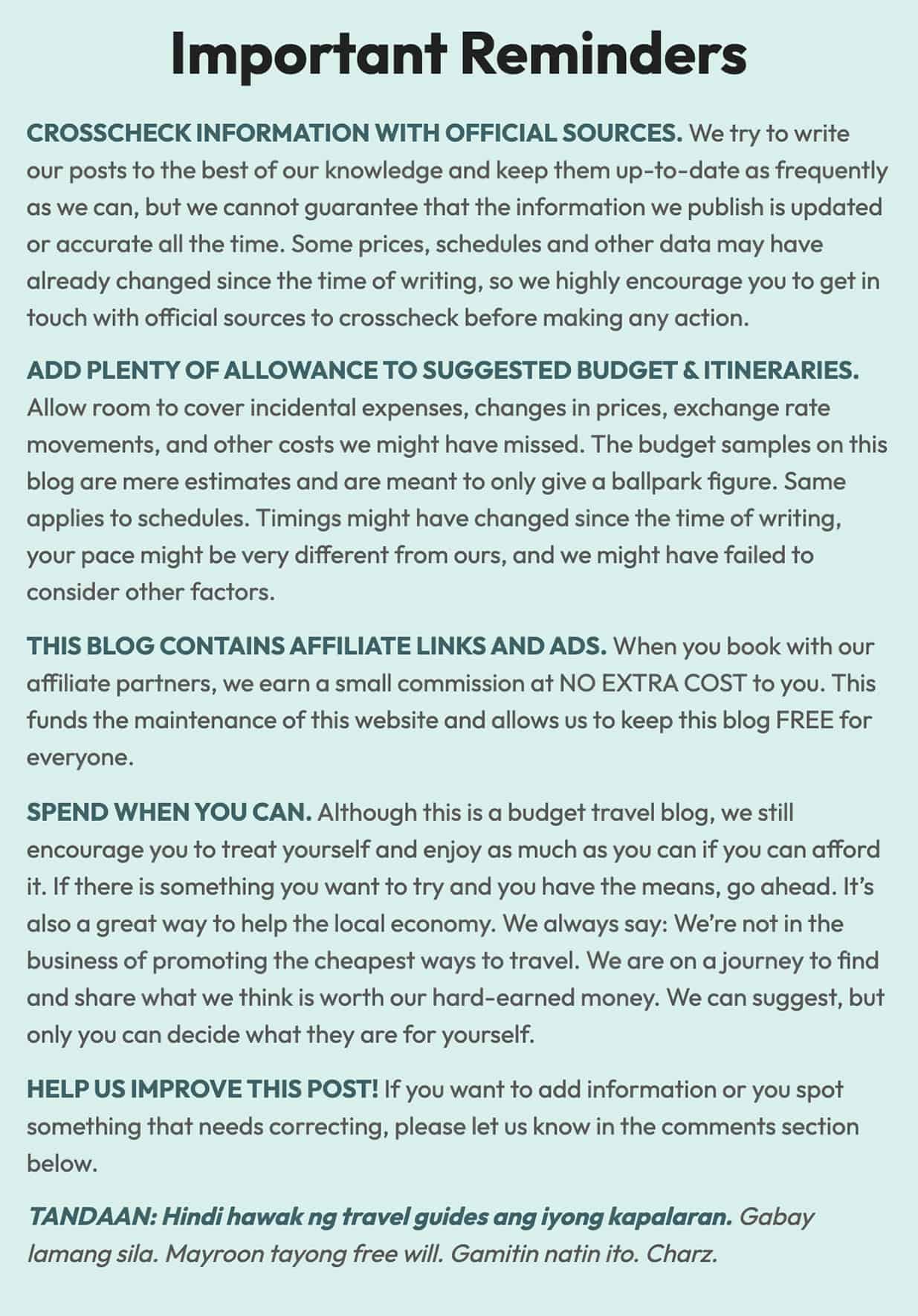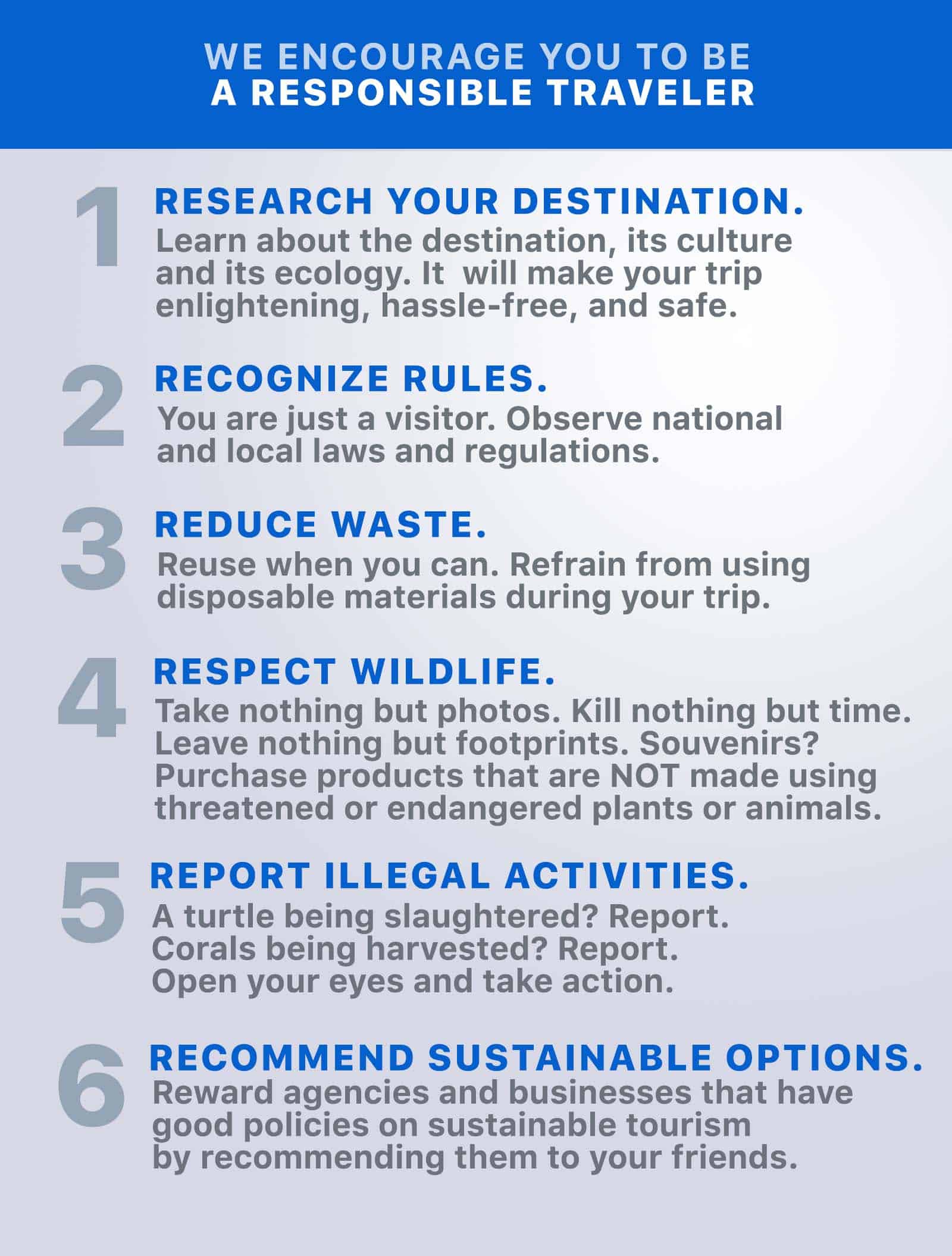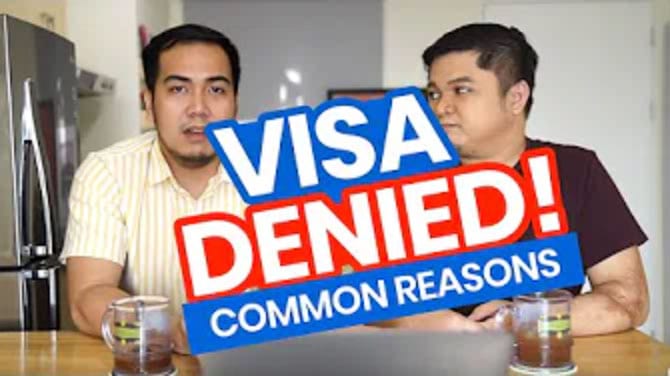Visa application is one of the most confusing and nerve-wracking parts of travel planning, especially if you’re a first timer. Embassies and consulates usually release a list of requirements and the application procedure, but that’s about it. Understandably, much of the process isn’t revealed to the public.
For example, most embassies do not explicitly state details like how much you must have on your bank account or how a sponsor can affect your application. Aside from that, every now and then we hear about unusual cases — applicants with great, almost perfect profile getting rejected or applicants with no travel history or stable employment getting approved a multiple entry visa.
There really is no blanket formula that applies to every one because each case is different and must be evaluated individually. But because much of the behind-the-scenes is, well, behind the scenes, visa applications are prone to misconceptions.
In this post, we’re compiling the most common misconceptions that our readers usually ask us to clarify. Here we go.
1. Being invited means better chances of approval.
Not always. This can work when applying for a Japanese visit visa, but not for most harder-to-get visas.
If anything, visa officers might give your application an even closer look if you’re invited by someone in their country. For example, the US Embassy and many Schengen embassies ask questions like: “Do you know anyone in Europe/US? How are you related to them?”
Why? Remember, visa officers need to make sure that you will NOT overstay. If you know someone in their country, there is that chance that you will overstay or not come back. They need to make sure that your declared purpose of travel is true and that it is in your best interest to return to your home country and not stay illegally.
They also require proof of your relationship with them and check that it is reliable. It’s not just to protect their national interest but also to protect you. If your inviter is someone you haven’t met in person, it can be a cause for concern.
2. Having a sponsor guarantees approval.
First of all, nothing and no one can guarantee visa approval. Not a travel agent, not a travel coach, not even a sponsor living there.
Again, it depends on the embassy. For countries like Japan and the UAE, having a sponsor can help your application. But for South Korea, Canada, and Schengen countries, a sponsor is not always a good thing. Often it can even hurt your application.
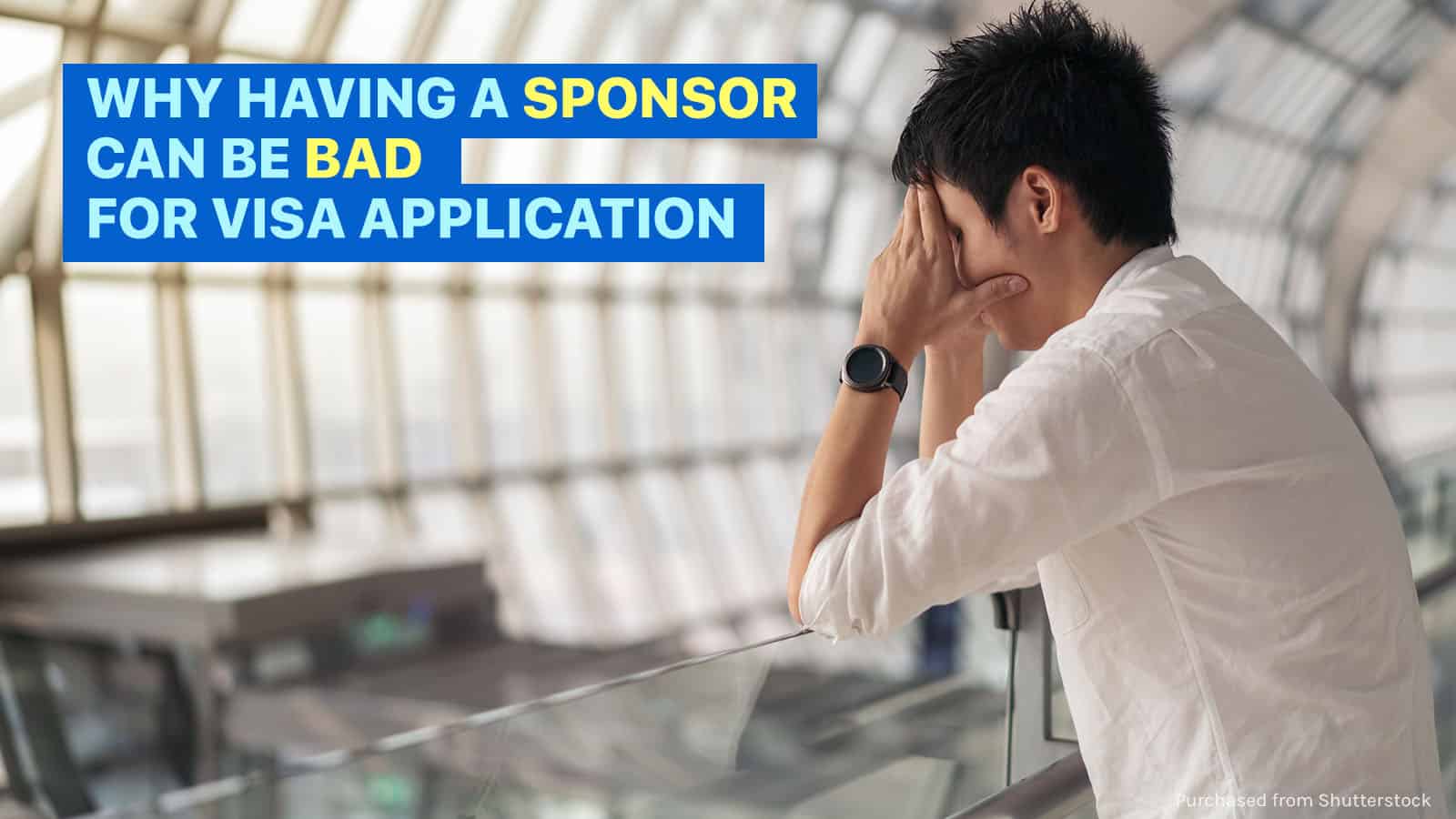
One of the aspects that stricter embassies examine is your rootedness in your home country. Having a sponsor gives the impression that you can’t afford to support your trip so they will dig deeper. Do you have a stable source of income? How long have you been with your company? Do you have enough funds? Do you own properties? These are the questions you should be asking yourself because these are what they will check.
That’s why most embassies still ask that you submit employment and financial documents even if your trip is sponsored by someone else. We explained this in detail in another post: WHY HAVING A SPONSOR CAN BE BAD FOR VISA APPLICATION.
3. A big show money can guarantee visa approval.
Nope, not even a huge sum of money in your bank can guarantee being granted a visa. Money isn’t everything. At least, it isn’t everything that visa officers inspect.
Some applicants borrow a large amount and deposit it all at once to their bank account before applying for a visa, but it’s NOT a practice that we encourage. Most embassies require bank statements (not just bank certificates) because they need to see not just the current balance but also the account activity. Any anomalous transaction like one-time big-time deposits can raise a red flag and lead to rejection.
They also take into consideration your salary, job stability, other sources of income, and, sometimes, how consistent they are with your financial documents.
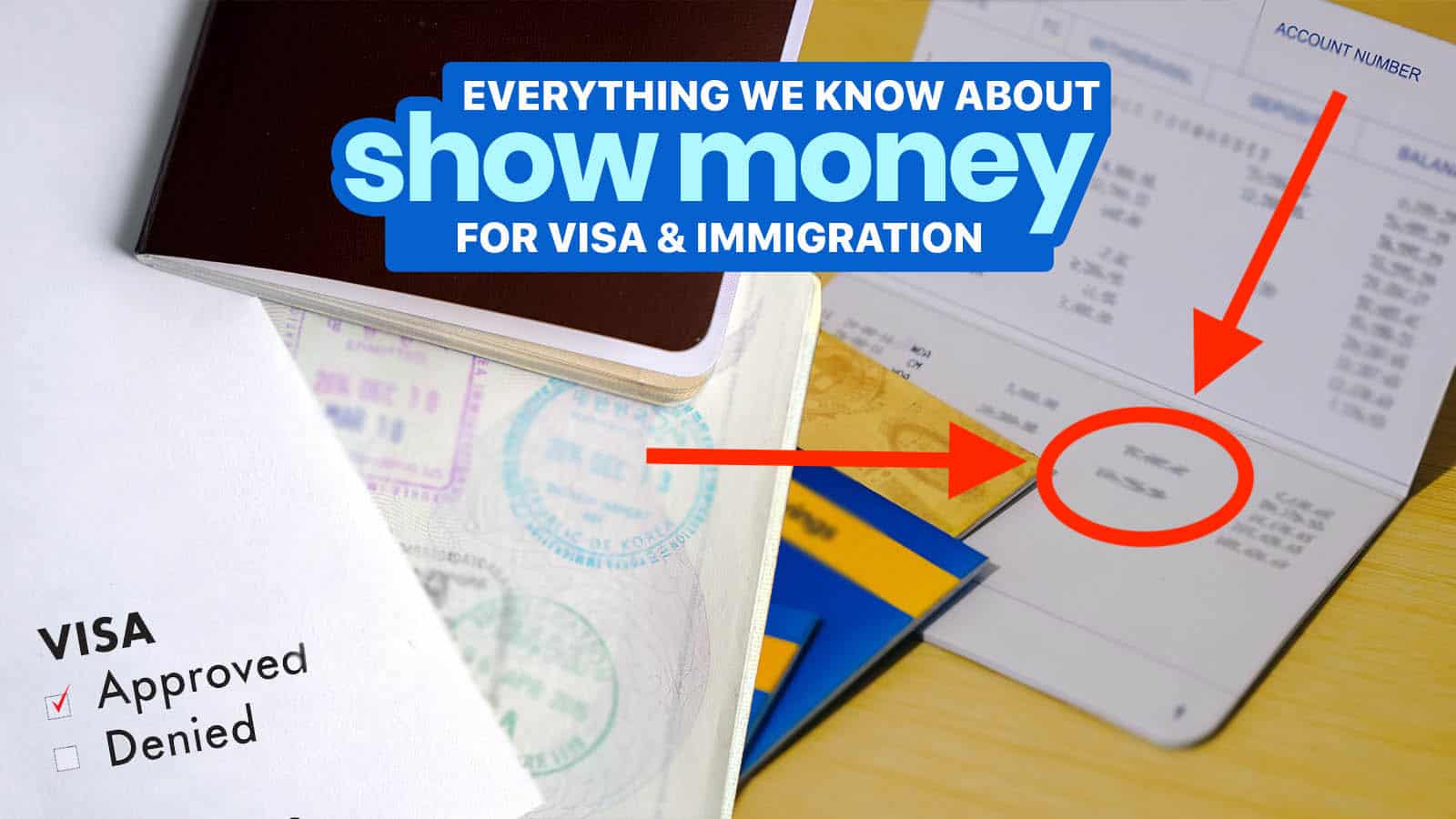
More info about that here: EVERYTHING WE KNOW ABOUT SHOW MONEY.
4. A strong travel history ensures approval.
No, it doesn’t. I have some friends who have a stellar travel resume but were still denied a visa. Two of them had visited over 50 countries but when they applied for a Schengen visa, the result was negative. Another friend had been to Europe and the United States but was denied a Japan visa.
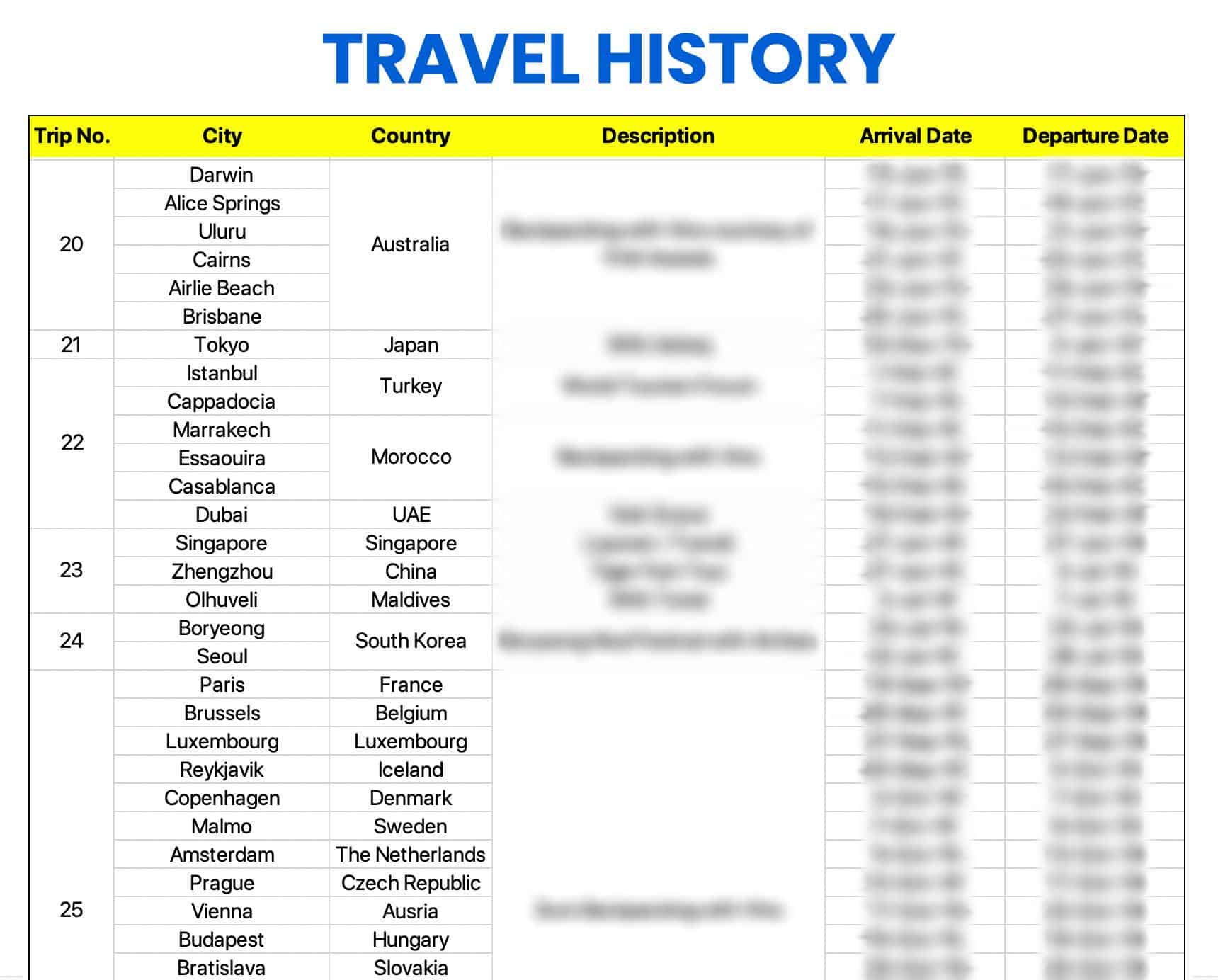
Sure, travel history can be a great help but it isn’t the be-all and end-all of visa applications. I genuinely believe that embassies are far more concerned about your rootedness and financial capacity than your travel history. In fact, there have been applicants who have never traveled abroad before but were granted a Schengen or a US visa on first try.
Still, we encourage you to build a strong travel history before you try going for hard-to-get visas. It doesn’t guarantee anything but like I said, it can give you better chances.
5. All I need is complete the requirements and I’m good to go.
We can’t count the number of times we have received messages like this: “My requirements were complete. Why did I get denied a visa?”
Completing the requirements is not enough. That’s the least an applicant could do. They also scrutinize each of those documents and they must find its content satisfactory.
You may have submitted a bank certificate but if it shows you don’t have sufficient funds, then it’s no good. You may have submitted a Certificate of Employment, but if it doesn’t have the right information, it can be a problem. You may have submitted an itinerary, but if it’s obviously impossible to pull off or inconsistent with your other documents, it can hurt your case instead.
6. If I don’t complete the requirements, I have no chance of being granted a visa.
Not necessarily. It depends on the embassy, the document you’re lacking, and the reason why you don’t have it.
If you’re missing something and you have a perfectly understandable reason, you can still give it a try. For example, some applicants had successfully secured a Japan or Korean visa even without an ITR because they explained they had recently switched jobs, started a business or went freelance, and the current ITR was yet to be filed.
I also have a freelancer friend who was able to get a Schengen Visa without a Certificate of Employment. She simply submitted other proof of income and stability like contracts, invoices, and even letters from clients.
The key is to have a convincing explanation and provide a reasonable alternative.
Of course, you should always try to complete the requirements as much as you can and submit as many as you can gather. But if you’re missing one, don’t give up because it may not be the end of the road.
7. All embassies are very strict.
Not all consulates and embassies are the same. The strictness level varies across the board. Some are more lenient. Others are definitely stricter.
Between Japan and Korean visas, the former is widely considered easier to secure. Japan only needs to see your bank certificate, not your bank statements. But Korea needs to see both.
Among Schengen countries, the Dutch and Austrian Embassies are generally regarded as more forgiving, while the Italian and Spanish Embassies are perhaps the strictest of all.
Of course, the usual suspects are present: application form, financial documents, employment documents, to name a few. But how strictly embassies implement these differ. For example, both the Greek and Italian Embassies require business documents from self-employed applicants. But the details are very different. The Greek Embassy asked us to submit the business registration, ITR, and financial docs only. But when we applied via the Italian Embassy, they also asked for copies of the BIR plate, business license, GIS (General Information Sheet of company), and Articles of Incorporation. We didn’t know this back then, so we had to print these docs at a nearby computer shop on the day of our application.
8. It’s always better to apply for a multiple entry visa so I won’t have to apply next time.
Not really. Embassies are not always generous with the number of entries they allow.
The rule of thumb is, if you’re a first timer or you don’t have high financial capacity, apply for a single entry visa unless you can justify the need for multiple. What you don’t want to happen is this: you could have been granted a single entry visa but because you got too ambitious, your application is declined altogether. It’s safer to be more realistic and aim low, unless it is justified.
What do I mean by “justified”? If your itinerary calls for a double or multiple entry visa, then go ahead and request for it. Here are some scenarios that clearly display a need for a double or multiple entry visa:
- If you’re visiting at least two countries on one trip but you need to go back to the first country to catch your flight home. For example, if you’re from Manila and planning an Australia-New Zealand trip. If you have a roundtrip Manila-Australia ticket and a roundtrip Australia-New Zeland ticket from different airlines, you will need to enter Australia twice. This means you need to get a double/multiple entry visa. Likewise, if you have a China-Korea-China trip, you will need to enter China twice, so apply for a double entry visa.
- If you’re traveling around Europe and you need to enter the Schengen zone at least twice. Example: Manila-France-UK-Iceland-Manila. When you fly to France, that’s your first entry. When you move to the UK, you’re exiting the Schengen Zone. When you land in Iceland, you’re once again getting into the Schengen zone, so that’s entry #2. You need a double entry visa for this.
- If you’re planning to visit the same country twice and you don’t have enough time to apply for a new visa after the first trip. This happened to me before. I had to fly out of a country and return to it immediately the next day.
Make sure you express the need for a double/multiple visa and explain your situation well. A cover letter can help you do the job. But whether or not they will grant your request is hard to say. Even if you ask for a multiple entry visa, it is within their right and at their sole discretion to give you single entry instead or reject your application altogether.
9. Applying as part of a group means I have a sure shot at approval.
Again, nothing can guarantee approval. There have been cases wherein travelers applied as a group but not all of them got a visa. Yes, even if they belong to one family. Some members can still be denied.
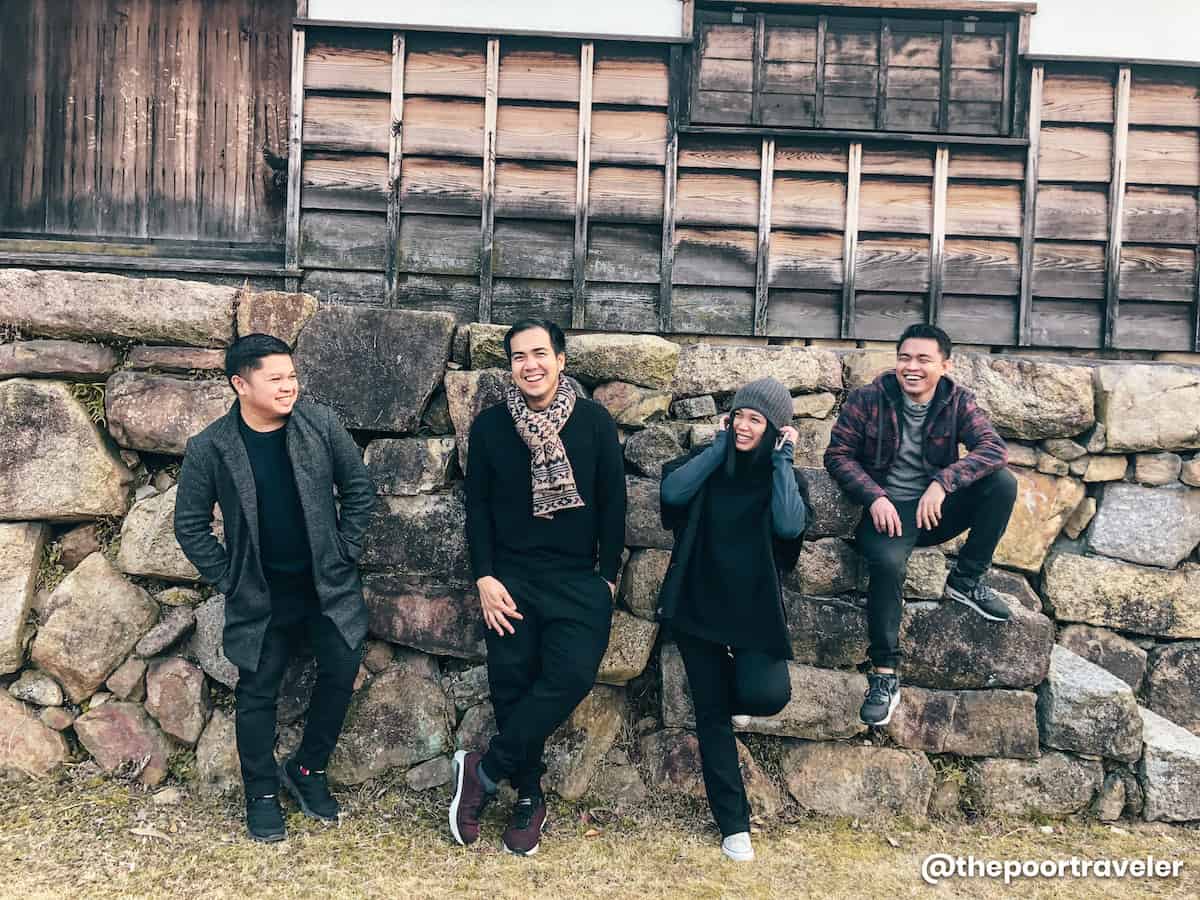
It could probably help your case, but it isn’t fail-proof. The truth is, visa applications are evaluated individually. You will be assessed based on your own documents and socioeconomic background. I have applied for a visa as part of a group before and I got a single entry visa while others were granted a multiple entry visa. My partner Vins has also applied with a group before and one of them was denied. The group shield doesn’t always work.
10. I need to book flights first before I apply for a visa.
In most cases, no, you don’t. Each embassy has its own rule, but most of them don’t require actual plane tickets.
The Japanese and Korean Embassies don’t have flight bookings on their list of requirements. For an Australian visa, it is optional. And while most embassies will ask you to submit flight reservations, they don’t really need the actual, confirmed plane tickets. There’s a difference.
A confirmed ticket means that you have already paid for your flight. On the other hand, a flight reservation simply shows that you have reserved a seat on a flight but not actually paid for it yet. You can get flight reservation from travel agencies. Some airlines can also hold slots for you for a specified period. Submitting a flight reservation instead of a ticket prevents you from wasting a lot of money on flights if your application is rejected.
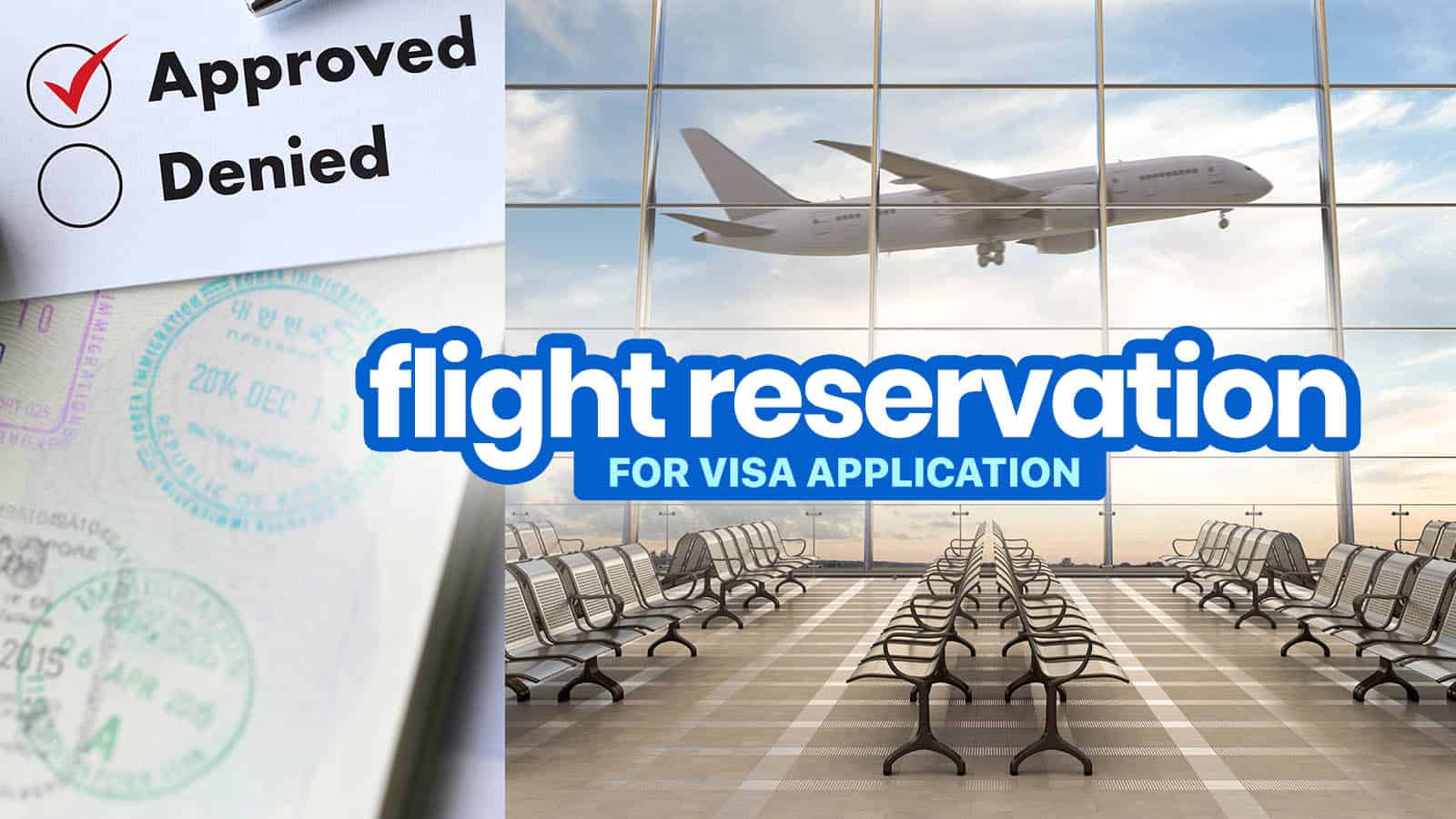
✅ GET FLIGHT RESERVATION HERE!
11. Travel agencies are pointless when applying for a visa these days.
Not true. Sure, there are certain visas that you can easily secure on your own, without the help of a travel agency. You can apply for an Australian or Indian visa completely online. But it doesn’t apply to all.
First of all, there are embassies that require that applicants course their application through one of their designated agencies. Japan and South Korea are the best examples. These accredited agencies act as the first gate, assisting you to help improve your chances.
Second, some travel agencies can provide requirements that can be difficult to secure on your own. Flight reservation is just one example. For UAE and other countries that require a sponsor, a travel agency abroad can also serve as your guarantor during your visit.
Lastly, some cases could definitely benefit from the expertise of travel agencies. If your situation is unusual or a little bit complicated, it can be hard to find out what to do. But an established travel agency has probably encountered a similar situation before and can hold your hand through the process.
Sometimes, instead of playing the guessing game, it’s best to tap the expertise and experience of a travel agency and make your life easier, even if it comes with a price.
12. Having a visa guarantees entry into the country.
Nope. Even if you are already granted a visa, you still have to clear two Immigration checks, which can cut your trip short even before it begins.
First, you need to face the Immigration Officers here upon exit. They have the power to stop you from boarding the plane (or ship) if they have doubts about your purpose of travel or find anything suspicious, even if you have a visa. Here in the Philippines, it’s usually called offloading (which is actually a misnomer). For more info about it, read: HOW TO AVOID GETTING OFFLOADED!

The other is the Immigration inspection when you land in your destination. They, too, can block you even if you already have a visa if they sense that something is amiss. That’s why you should always research and prepare the documents that they could ask for, just in case they do look for them.
Related Visa and Immigration Posts
- Why Having a SPONSOR can be BAD for Visa Application & Immigration
- Common Reasons why Visa Applications are DENIED!
- How to Prepare for VISA APPLICATION (Long Term Tips)
- Everything We Know about SHOW MONEY
- FIRST TIME ABROAD: Immigration Tips
- How to Avoid Getting OFFLOADED: Immigration Requirements & Tips
2020 • 2 • 3
